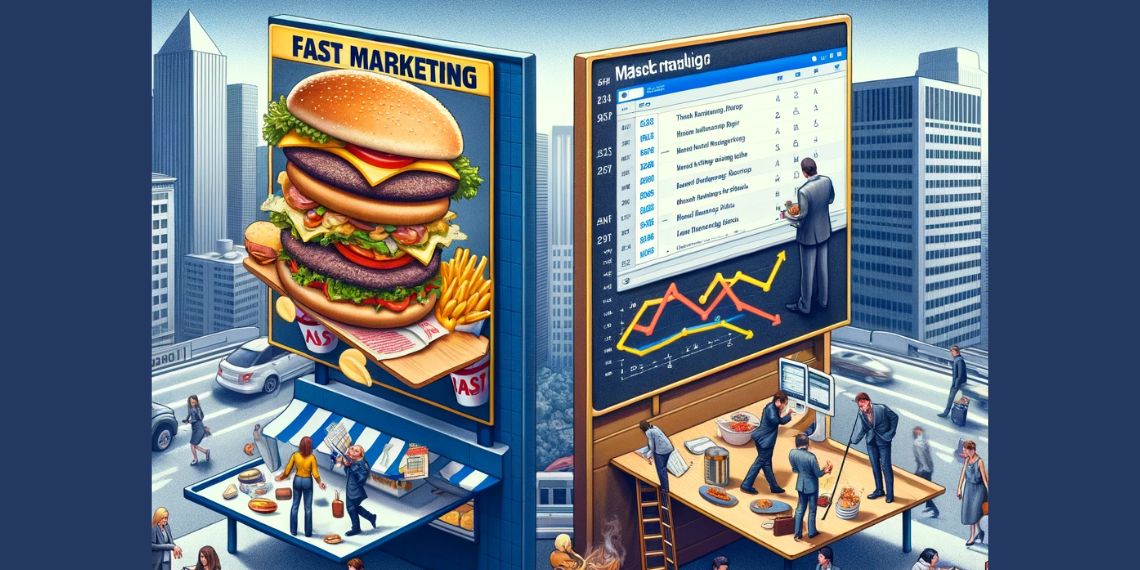Fast Marketing: An Impulsive Approach
Fast marketing is essentially an impulsive approach that prioritizes immediate results over sustainability and quality. This can include tactics such asbuying massive amounts of online advertising without any real strategic plan, sending massive amounts of untargeted e-mail, or creating superficial content to attract short-term attention.
Let's take the example of a B2B company that decides to invest heavily in online advertising without first defining its target audience or long-term objectives. This company may generate a short-term spike in traffic to its website, but it runs the risk of failing to convert this traffic into loyal customers. Advertising costs may rise rapidly without bringing lasting results, because there is no customer retention strategy in place.
The Importance of Long-Term Strategy
A short-term approach, such as fast marketing, neglects the importance of long-term strategy. B2B companies need to build solid relationships with their customers, which requires time and patience. Taking a long-term view enables you to develop a solid brand imagegain customer trust and build a loyal customer base.
Now imagine a company that develops a solid content strategy focused on educating its potential customers. It creates useful resources such as white papers, webinars and informative blog posts. This approach may not immediately generate sales, but it establishes the company's credibility over the long term. Customers recognize the value of her expertise and are more likely to become loyal customers over time.
The costs of marketing without strategy
Fast marketing may seem economical in the short term, but it can be expensive in the long run. Companies that adopt this approach can waste valuable resources by investing in tactics that bring only temporary results. Marketing costs without a real strategy can add up quickly, with no guarantee of lasting results.
A B2B company that spends a lot of money on advertising campaigns without analyzing the data and ROI can quickly exhaust its budget. Ads can generate traffic, but if they're not properly targeted, they can lead to a low conversion rate. Without a thorough analysis and optimization strategy, the company will continue to spend money without achieving significant results.
The Myth of Cold Emailing: The Quest for Instant Customers
A recent trend in B2B marketing is cold emailing, which suggests that you can get 20 new customers by sending just 5 successive e-mail messages to strangers. This approach promises quick results, but often overlooks the importance of building long-term relationships.
In reality, cold emailing can be ineffective if not carefully executed. Unsolicited messages can be perceived as intrusive, and response rates are often low. Rather than focusing on quantity, it's better to focus on quality by personalizing messages and targeting prospects who are genuinely likely to be interested in your products or services.
No Magic Recipe: A Solid Strategy Is Essential
In conclusion, there is no magic formula for developing sales in the B2B world. Fast marketing, like fast food, may seem attractive in the short term, but it's not a viable solution for achieving lasting results. To succeed in B2B marketing, you need a long-term vision, a solid strategy, a well-defined business plan and communication and marketing actions planned throughout the year.
